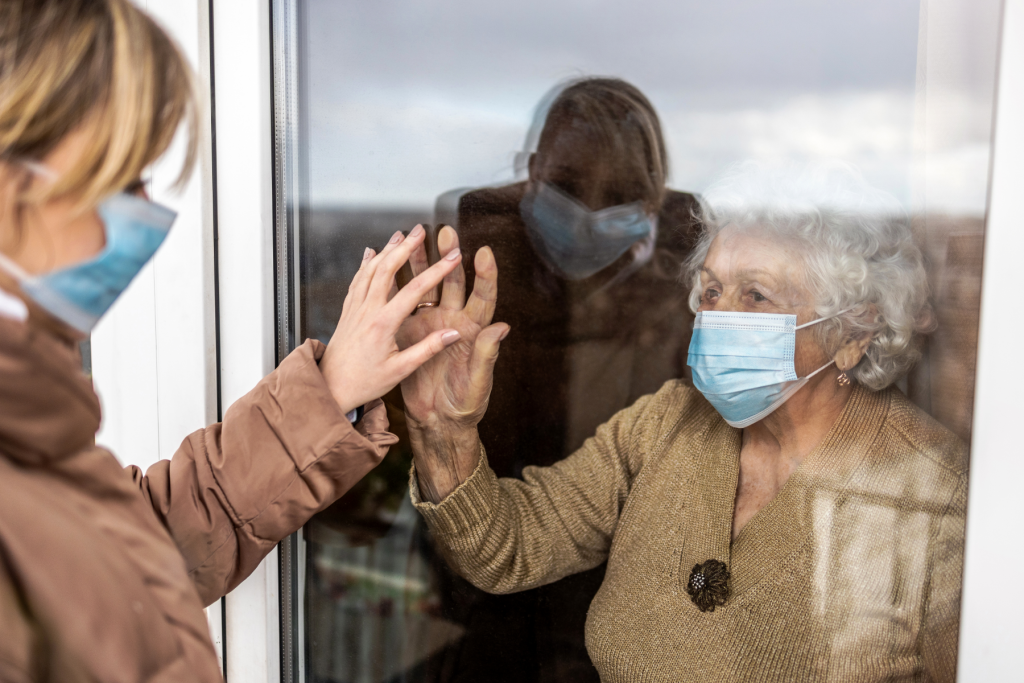The COVID pandemic has forever changed our world. This may be our new normal, but our new normal has drastically affected our seniors, especially those not living independently. Federal and State governments have issue numerous Executive Orders and Administrative guidance on COVID quarantine and restrictions to long-term care facilities, which includes intermediate care facilities, personal care homes, skilled nursing facilities, nursing homes, inpatient hospice, assisted living communities, and all facilities providing assisted living care.
This guidance contains or did contain many restrictions, including, but not limited to the following:
- Mandatory 14-day COVID quarantine for admissions and readmissions;
- Total lockdown of facilities;
- All resident, staff, and visitors must wear a mask regardless of vaccination status and follow additional core infection control measures;
- Facilities maintain an observation unit for admission and readmission;
- Except in end-of-lifetime situations, visitors were prohibited from all visitation. Now limited visitation is allowed, but visitors must still maintain social distancing practices from other residents and staff;
- Non-medically necessary trips outside the visits are now allowed but should be limited; and
- Facilities should continue to screen their residents three times a day.
In addition, Congress and State legislatures held a hearing regarding COVID focusing on short staffing, low wages, and the impact of COVID on “direct care workers” who are predominantly women of color. Coming in a distant fourth on the political priority list was resident isolation. Expert after expert testified as to priorities in testing, transparency in the data, vaccination rates, and financial accountability. A few experts focused on making sure residents had in-person visitations or virtual visitations to reduce isolation
To date, the data suggests that there were over 133,000 nursing home deaths nationwide. Florida had over 4,800 (3.6% of the total) and Georgia had over 3,100 (2.3% of the total). The question is how did the COVID isolation and quarantines impact these totals?
Negative Effects of COVID Quarantine
Loneliness and isolation have a larger impact on a senior’s health than you may realize. A lonely or isolated senior is at an increased risk for depression, which can lead to drug and alcohol abuse, dehydration, poor nutrition and mental decline, just to name a few consequences. It is no surprise that the COVID quarantines and restrictions have negatively impacted the physical and mental health of our seniors
Being social is important. Studies have shown that a senior who remains social has improved mental health, often avoiding cognitive decline. Social interactions with friends, family, and other residents can help reduce the risk of depression. These social interactions help seniors keep their minds sharp and may help reduce the risk of dementia, or at the very least slow its progression. No one wants to eat alone. Socialization can improve a senior’s nutrition, reducing the risk of malnutrition and dehydration. Fellowship around the dinner table can contribute to the overall health of your family member.
Socialization often leads to less physical pain, lower blood pressure, and a boost in your immune system. Studies have shown that loneliness is a bigger health risk, bigger than obesity or smoking. Studies have also shown that isolation and loneliness increase the risk of death by as much as 30%. The bottom line is that social interaction with others is critical to everyone’s health and well being.
With all the COVID quarantine and restrictions, how do you interact with your senior to minimize the loneliness and isolation?
HOLD FACILITIES ACCOUNTABLE AND BE TENACIOUS!
Even under the current Federal and State Executive Orders and Administrative guidelines, a facility cannot restrict your visitation without a reasonable clinical or safety cause. A facility must facilitate in-person visitation consistent with applicable Centers for Medicare and Medicaid Services (CMS). Failure to enable visitation, without adequate reason related to clinical necessity or resident safety, could constitute a potential violation of Federal regulations.
Even those residents who are currently under a COVID quarantine period are entitled to receive their virtual or through-window visitations with adherence to transmission-based precautions. Window visitations are more likely than virtual visitations as facilities are more reluctant to use their staff to support virtual visitations.
Accountability and Tenacity. If you believe that your loved one is lonely and isolated, be persistent in holding the facility accountable. Most facilities are compliant, but there are a few who, for whatever reason they feel is appropriate, will fail to allow you access to your loved one. Hold them accountable and be tenacious.

